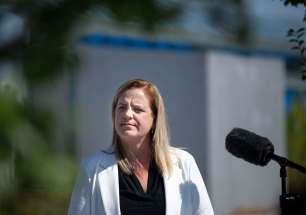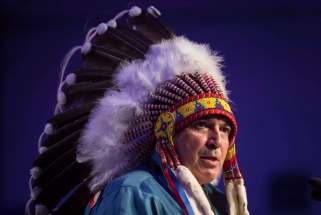Persuasion, not policy-making, AFN’s role at pivotal time in history for Indigenous peoples, Canada
Read this article for free:
or
Already have an account? Log in here »
To continue reading, please subscribe:
Monthly Digital Subscription
$0 for the first 4 weeks*
- Enjoy unlimited reading on winnipegfreepress.com
- Read the E-Edition, our digital replica newspaper
- Access News Break, our award-winning app
- Play interactive puzzles
*No charge for 4 weeks then price increases to the regular rate of $19.00 plus GST every four weeks. Offer available to new and qualified returning subscribers only. Cancel any time.
Monthly Digital Subscription
$4.75/week*
- Enjoy unlimited reading on winnipegfreepress.com
- Read the E-Edition, our digital replica newspaper
- Access News Break, our award-winning app
- Play interactive puzzles
*Billed as $19 plus GST every four weeks. Cancel any time.
To continue reading, please subscribe:
Add Free Press access to your Brandon Sun subscription for only an additional
$1 for the first 4 weeks*
*Your next subscription payment will increase by $1.00 and you will be charged $16.99 plus GST for four weeks. After four weeks, your payment will increase to $23.99 plus GST every four weeks.
Read unlimited articles for free today:
or
Already have an account? Log in here »
Hey there, time traveller!
This article was published 27/07/2018 (2696 days ago), so information in it may no longer be current.
The headdress had hardly been put on Perry Bellegarde’s head after being re-elected national chief of the Assembly of First Nations when he faced questions.
Sitting beside Crown-Indigenous Relations Minister Carolyn Bennett at a special assembly Thursday, the day after the election, Bellegarde announced: “This is what the AFN is for.”
Is it?
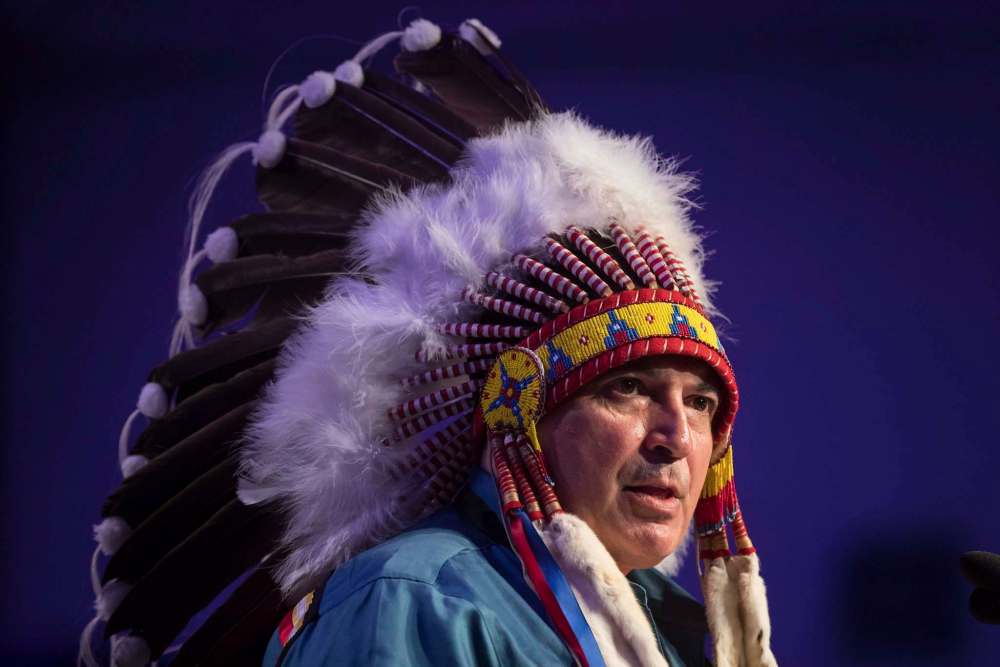
The federal Liberals have introduced a breakneck number of bills aimed at changing the relationship between the Crown and Indigenous peoples. Four more are on the way, and with these, the AFN has some tough decisions.
During the Stephen Harper years, no chief could get any attention from the federal government. During the Justin Trudeau years, every chief gets asked for a prime minister selfie — especially Bellegarde, who has been widely criticized as being too close to the Liberals.
Still, the Liberals have made Indigenous issues a tent pole in their mandate. Canadians should understand what they’re doing, and how Indigenous peoples feel about it.
To understand this, one must understand the two huge issues the Liberals are grappling with.
The first is to define Indigenous and treaty rights.
Entrenched in section 35 of Canada’s Constitution, these are undefined. This has led to huge problems, resulting in endless, expensive marches to the Supreme Court, where judges must determine what rights Indigenous peoples do and do not have. In most cases, they rule in favour of First Nations.
While Canadians have clearly defined rights under the Charter, Indigenous and treaty rights are not human rights, including rights to the environment, languages and education.
Canada’s hand is forced. This must be solved.
The second is removing the draconian Indian Act, the reason for dire, unrelenting poverty on First Nations.
The Indian Act’s legislative shadow normalizes the grip the Canadian government has on First Nations. Removing it will take generations.
So, the federal Liberals are introducing four bills.
The first two are to split the Department of Indigenous Affairs into the Department of Indigenous Services (DISC) and Crown-Indigenous Relations and Northern Affairs (CIRNA).
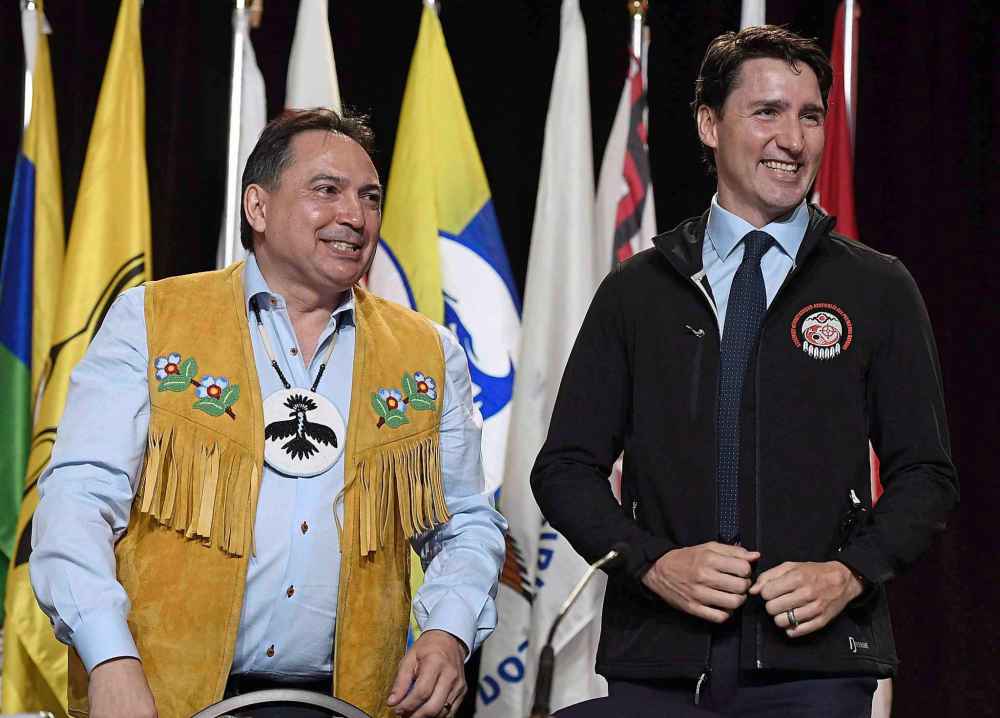
This is an attempt to divide an overwhelming, self-imposed problem. The federal government administers 650-plus chronically underfunded and impoverished First Nations, and changing this relationship at the same time is difficult. Assuming it wants change, the country is endlessly chasing it’s tail.
But readers may be confused, as the split was implemented in August 2017. How could the feds employ something in advance of it being law?
Exactly. First Nations leaders had no say in this change and were taken by surprise, which has led to incredible confusion.
Take education, for example, a service First Nations provide to citizens, but is also a treaty obligation inherent to the relationship between First Nations and Canada. Who now handles this? DISC or CIRNA? Both?
The same could be said about land, housing and infrastructure.
This all sounds like the same-old relationship.
The disorientation continues with the Indigenous Languages Act, coming in the fall.
Announced by Prime Minister Trudeau in December 2016, he vowed to “ensure the preservation, protection and revitalization of First Nations, Métis, and Inuit languages in this country.”
The problem is, this bill had better come with administrative reform and new funding. If implemented, First Nations governments are going to have to teach languages alongside dealing with mouldy houses, tainted water and chronic unemployment. Forcing them to choose between emergency situations or face a court challenge for not providing language programs is a recipe for community toxicity.
Downloading a problem the federal government created via residential schools is a final insult to cultural genocide.
Which brings us to the fourth forthcoming bill: the Indigenous Rights, Recognition and Implementation Framework, promised for fall 2019. The linchpin of the federal government’s plan, this bill intends to provide clarity on Indigenous and treaty rights in Canada.
It comes with big promises. During it’s announcement, Trudeau promised “new legislation and policy that will make the recognition and implementation of rights the basis for all relations… (The bill) can also include new measures to support the rebuilding of Indigenous nations and governments, and advance Indigenous self-determination, including the inherent right of self-government.”
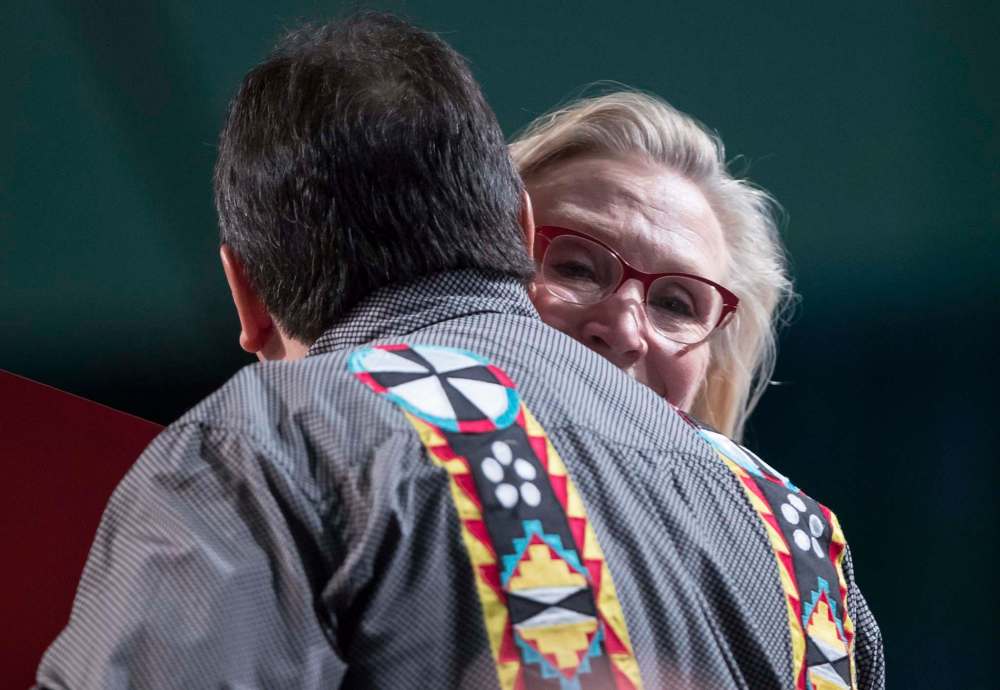
The bill is now in production as CIRNA minister Bennett tours the country drafting it — as in the AFN meeting.
Thus far, more than 1,300 First Nations, Inuit, and Métis participants have contributed in meetings. The AFN has been a primary venue for these discussions.
In a damning report, the Indigenous-led think tank Yellowhead Institute criticized the framework’s findings as a “modified status quo,” stating the legislation will reduce Indigenous and treaty rights, force First Nations into imposed forms of self-determination and deny the real issues that cause First Nations poverty: a lack of land and fair implementation of treaties.
As the report states: “The rights framework as currently articulated is settling for a very narrow vision of Indigenous jurisdiction over lands, resources and self-determination generally.”
The biggest issue though, is the AFN is becoming the primary venue for discussions surrounding the framework.
The AFN is not a decision-making body. It is a lobby group for decisions made by chiefs.
Will the national chief step outside of what the AFN is supposed to be, or be a national advocate?
Bellegarde has three years to find an answer.
niigaan.sinclair@freepress.mb.ca

Niigaan Sinclair is Anishinaabe and is a columnist at the Winnipeg Free Press.
Our newsroom depends on a growing audience of readers to power our journalism. If you are not a paid reader, please consider becoming a subscriber.
Our newsroom depends on its audience of readers to power our journalism. Thank you for your support.

